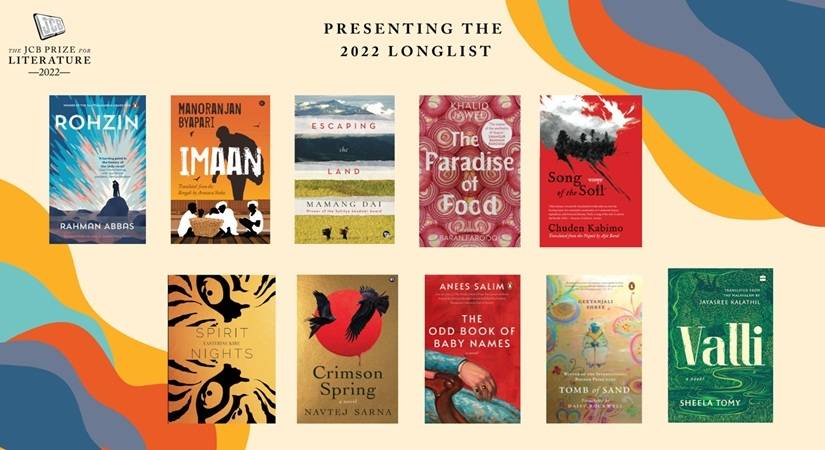“The Paradise of Food” is the fourth translation to win the award and the first work in Urdu. Khalid Jawed also received the Prize trophy, a sculpture by Delhi artist duo Thukral and Tagra, entitled ‘Mirror Melting’…reports Asian Lite News
Khalid Jawed’s “The Paradise of Food”, described as “a brutal and mesmerizing account of the contemporary body, home and nation told through the food and kitchen” and published by Juggernaut, was declared the winner of the Rs 25 lakh JCB Prize For Literature 2022, India’s richest literary award for contemporary fiction by an Indian writer.
The winner was announced on Friday by JCB Chairman Lord Anthony Bamford virtually during the hybrid event where the trophy was handed over to the winning author by Sunil Khurana, Chief Operating Officer, JCB India, and Jury Chair AS Panneerselvan.
“The Paradise of Food” is the fourth translation to win the award and the first work in Urdu. Khalid Jawed also received the Prize trophy, a sculpture by Delhi artist duo Thukral and Tagra, entitled ‘Mirror Melting’.
The book was selected by a panel of five judges, including Amitabha Bagchi, Dr. J Devika, Janice Pariat and Rakhee Balaram. Jury members were unanimous in their praise for “The Paradise of Food”.
Panneerselvan described the book as a “celebration of human spirit, hope, loss, aspirations, and anxiety. It is a fine artistic achievement where aesthetics negotiates a difficult political trajectory that is haunting our country. The carnivalesque element makes this a modern fable”.
Said Janice Pariat: “This rare, beautiful book achieves, with exquisite, startling, singing prose, what few others have in recent and not-so-recent-years a microscopic yet epic exploration of humanity in all its ugliness and beauty, its cruelty and kindnesses, its silliness and wisdom. I was left amazed, enthralled, thrilled.”
Amitabha Bagchi said: “This singular and moving book shines a scintillating light on the violence at the heart of human civilization. The language contains several beautiful and unusual formulations that are a literary achievement by both the author and the extremely skilled translator. A literary landmark in a less celebrated genre of Urdu’s grand literary tradition, this work deserves to be widely read in India and beyond.”
Dr. J Devika said the book “works like a powerful ice-pick in the winter of the civilizational crisis that has engulfed the countries of South Asia. And it does this by mobilising the poetic powers of Urdu, placing liberation above nation-building, which we think is the work of a novel. The translation is perfect and inspired”.
Rakhee Balaram said: “A book of indescribable brilliance, (it) blazes a trail and redefines the contemporary Indian novel. Beauty and horror, sacred and profane, the book attracts and repels us as we turn each page. Our understanding of the personal and political intersect through the food and kitchen in the most unforgettable ways.”
Khalid Jawed is one of today’s leading Urdu novelists. He is the author of fifteen works of fiction and non-fiction, and is a recipient of the Katha Award, the Upendranath Ashk Award and the UP Urdu Academy Award. He is a professor at Jamia Millia Islamia University.
Baran Farooqi is a professor of English at Jamia Millia Islamia University. She is the acclaimed translator of “The Colours of My Heart”, a selection of poems by Faiz Ahmed Faiz.
ALSO READ-Success story of first Muslim female neurosurgeon in India

